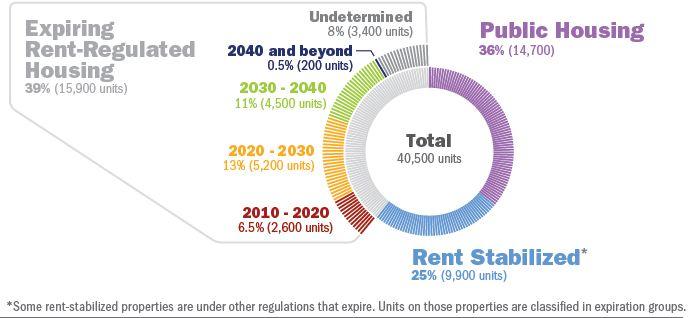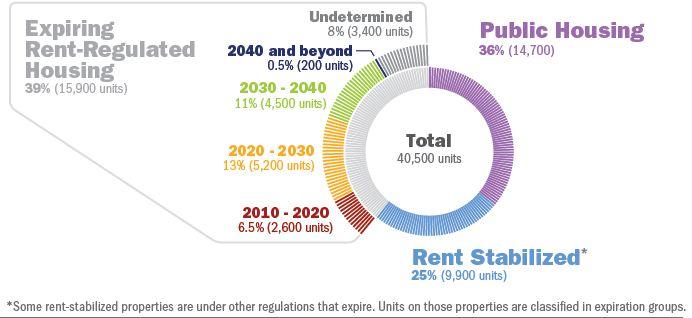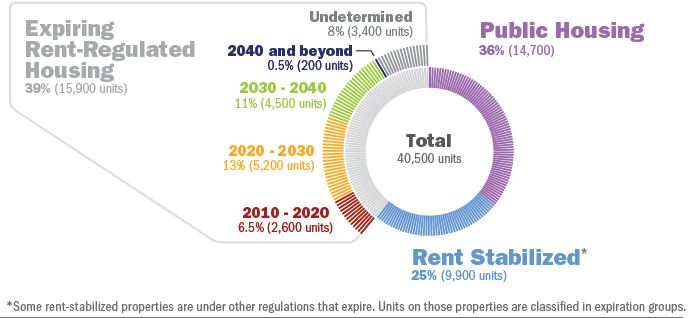NEW YORK—Almost one-third of the estimated 40,500 rent-regulated housing units in East Harlem will have rent protections expire by 2040, some before 2020, according to an urban research and advocacy group.
“Many of East Harlem’s residents are at risk of being priced out of their homes and neighborhoods,” stated the report, which was produced by the Regional Plan Association (RPA) for Manhattan Community Board 11 and other community stakeholders.
The report is the second in a series that aims to advance policy strategies to preserve
rent-regulated housing in the East Harlem community, where most residents live in some form of rent-regulated housing.
Using data from three different sources, the report highlights 2,600 units, which are scheduled to expire before 2020, most of them north of 120th Street. Another 9,700 units will expire by 2040.
These units expire because they are financed by programs that have expiration within their mandate of the subsidy that they provide, said L. Nicolas Ronderos, director of economic and community development at RPA and primary author of the report.







